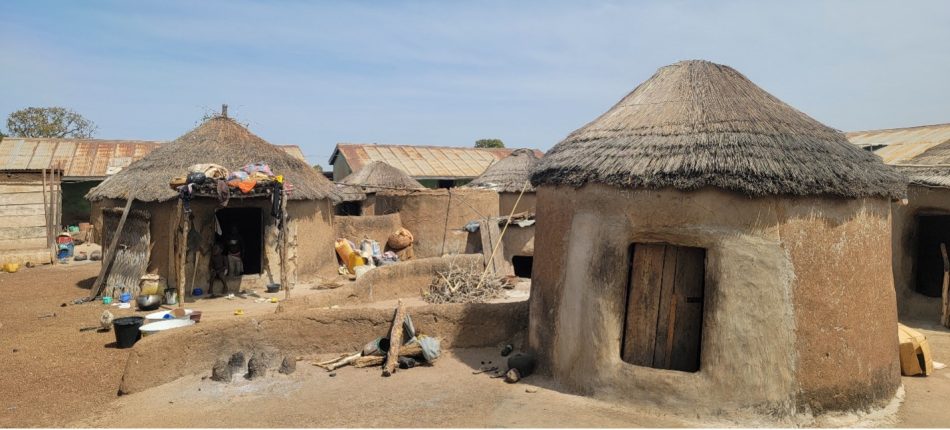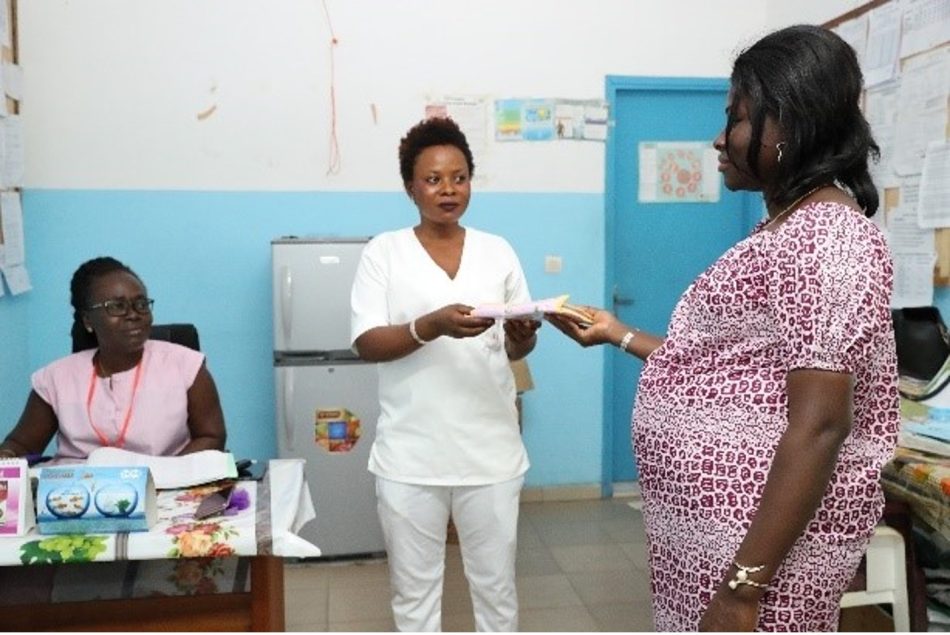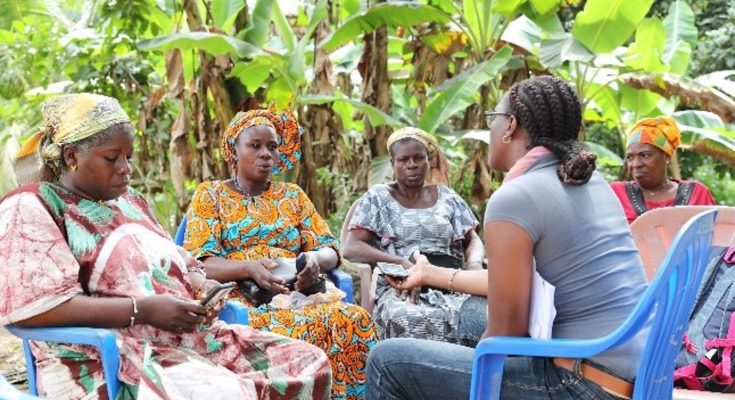October 15: International Day of Rural Women
October
17: International Day for the Eradication of
Poverty
Rural Women
By Doreen Ampofo
For many communities in Northern Ghana there is inadequate access to many basic social amenities and high rates of poverty. Many people turn to superstition to explain their dire circumstances. Unfortunately, older poor women are the victims who are blamed for other’s misfortunes. Rural women are targets of witchcraft accusations because they are mostly poor and cannot afford a means to defend themselves. Many of these women are forced to live in witches camps and to farm to fend for themselves, even in their frail state.
The theme for this year’s International Day of Rural Women, “Rural Women Cultivating Good Food for All,” highlights the essential role that rural women and girls play in the food systems of the world. I am passionate about this because everyone deserves a right to life, however a number of these women are denied that right. They deserve to have a voice and to be treated fairly. They deserve to have a country and society that protects them, not one that pays lip service and leaves them to their fate and a society ready to devour them.My Humphrey year is an opportunity to build myself as their voice to put pressure on Ghana’s Government to formulate and implement policies that protect them.
Link to story: https://www.gbcghanaonline.com/features/safe-prison-the-case-of-alleged-witches-in-northern-ghana/2020/


Most rural women in Ghana are having to deal with failed crop production in their communities. This is a result of climate change. Lands for agriculture are hard and difficult to farm. On occasions when they manage to till the lands, floods submerge their farms. Their situation is worsened by lack of access to land, funds and decision making roles. Most rural women have for decades been relocating to the big cities like Accra and Kumasi for menial jobs because they are no longer able to contribute effectively to the food production value chain. They become shopping baskets, locally called “Kayayei” for shoppers in the big cities. They sleep in the open in parking lots. They are exposed to the biting cold when it rains, extreme heat, thieves and Mosquitoes. Some of them become victims of assault and rape. This year marks the 35th anniversary of the World Day to Overcome Extreme Poverty and the 30th anniversary of the International Day for the Eradication of Poverty. It presents an opportunity for governments to make vulnerable communities more resilient to climate change, support the poorest, and correct structural inequalities and discrimination that perpetuate poverty. I joined colleagues to produce a podcast series that highlight this. Links below to listen:
Spotify:
https://open.spotify.com/show/49bbqa9yXZodmFeWuac3wD?si=xcOnxXbOQvODefaV5FUrSw
Stitcher:
https://www.stitcher.com/show/climate-change-and-us-ghana-ground-zero
Anchor:
https://anchor.fm/charles-rice39
Apple Podcasts:
https://podcasts.apple.com/us/podcast/climate-change-and-us-ghana-ground-zero/id1615651139

Eradication of Poverty
By Emmanuella Dago-Akribi
I strongly believe that education and health are the two pillars of a nation’s development. Well-educated, healthy people who are confident about their children’s future in terms of health and education are much more economically productive and able to improve their well-being. That is why during this fellowship I intend to improve my knowledge and skills in C4D so that I would be able to design strategies and products for development programs that contribute effectively to the improvement of the living conditions of the populations in my country

The effectiveness of the effort to reduce poverty is strongly affected by the policies initiated to improve access to basic social services, particularly drinking water, health and education, but also by the empowerment of women and measures to improve household income. In Côte d’Ivoire, the poverty rate is higher in rural areas than in urban areas.
Access to drinking water
Access
to safe water reduces the prevalence of waterborne diseases,
reduces school absence due to turnaround time to fetch
water, reduces the risk of sexual violence when they have to
go long distances for water. In Côte d’Ivoire, the
rate of access to drinking water is about 80%, with a target
of 100% by 2030.



Education
According to UNESCO,
global poverty could be reduced by 12% if all students in
low-income countries left school with basic reading skills.
In Côte d’Ivoire, school is free and compulsory
until age 16. Several projects are being developed to make
this policy effective. In particular, the national school
canteen program has reduced school absence rate and improved
school results. Although the canteens are initiated by the
government and its partners, their sustainability is ensured
by the contribution of communities in food products for the
preparation of meals.

Empowerment of women
To enable
women to create or expand income-generating activities, the
government and private institutions make funds and
micro-credits available to them at preferential rates

Health
The causal link between
health and poverty is two-way. A healthy population is more
economically productive and the mortality rate is higher in
poor areas (WHO).
Malaria is one of the main causes of hospitalization and death in Côte d’Ivoire, however, the means deployed for prevention and treatment have made it possible to record a 50% decrease in malaria deaths in hospitals from 2017 to 2020.

To reduce the infant mortality rate, which is heightened by deaths related to prematurity, Côte d’Ivoire has introduced the “kangaroo mother” care technique where the mother continuously carries her low-weight newborn on her chest, skin to skin. This technique which helps the baby to develop physically and mentally is available in dedicated centers. This alternative to the incubator made it possible to save 90% of premature babies from 2019 to 2021.






